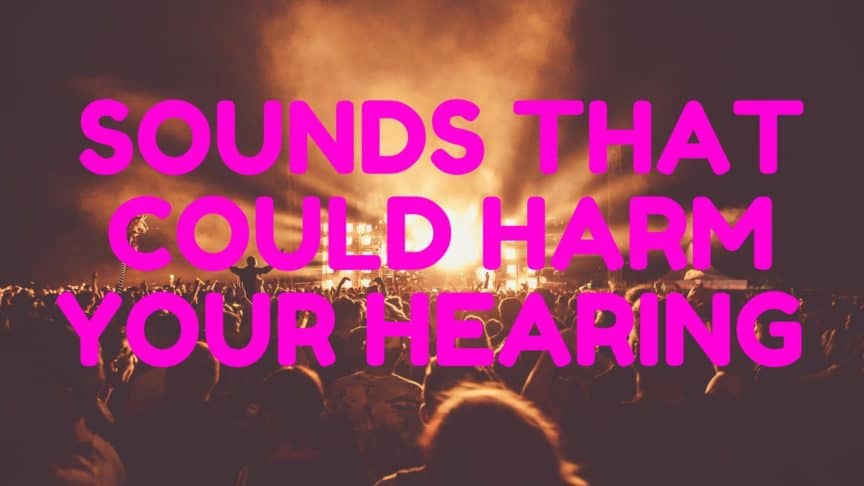- How to Care for Infants With Hearing Loss - April 15, 2024
- Hearing Aid Tips for Runners - April 5, 2024
- Overcoming Misconceptions Around Hearing Aids - March 27, 2024
Whether you work in an office or spend a lot of time at home, you’re exposed to some noise daily. You might not even realize it yet, but continuous exposure to high decibel sounds can cause harm to your hearing over time.
Noises over 85 decibels, the unit of sound measurement, can damage hearing and potentially cause hearing loss. And we come into contact with these harmful volumes regularly and unexpectedly.
Noise-induced hearing loss
Hearing loss is caused by the natural aging process, the most common cause. However, noise-induced hearing loss is a close second, and the two can occasionally be confused in a hearing loss diagnosis.
Noise-induced hearing loss can occur all at once, such as in an accident or explosion. People are usually aware that their hearing has been harmed in these situations. On the other hand, noise can cause hearing loss over time if exposed to it repeatedly. This is a more insidious injury since it is frequently so mild that it goes undiscovered at first or even for decades.
Humans are highly adaptable creatures. It’s a valuable trait in terms of survival, but it makes it harder to detect changes in our hearing. We don’t desire to change our habits or use hearing protection until it’s too late if noise exposure is just a little too loud — loud enough to cause damage but not painful enough to induce pain.
How might excessively loud sounds harm your hearing?
Loud noise impairs our hearing health by damaging the sensitive cells in our inner ears. Our ears are meant to channel sound from the outside world into these sensitive cells, where it may be received and transmitted to the brain.
However, because inner ear cells are non-regenerative, they do not heal or increase when destroyed. The result is that the brain receives less sound information, resulting in our perception of hearing loss.
What is the threshold for being excessively loud?
Experts agree that any noise exceeding 85 dB is harmful to hearing and can result in hearing loss. Sound barriers, hearing protection, quieter machinery, and regular breaks are all required by the Occupational Health and Safety Administration (OSHA) for sites with noise levels over 85 decibels.
Sounds that are surprisingly loud for your ears
However, loud factories aren’t the only ones who have to deal with excessive noise. We willingly expose ourselves to it every day in unforeseen situations. Here are a few examples:
Blow Dryers: These devices can reach decibel levels of 90 or 110.
Lawnmowers: if you don’t use hearing protection, you might damage your hearing with regular mowing. It’s a task that easily exceeds 90 dB in terms of noise.
Sports games: Bad news for season ticket holders: during gameday, sporting arenas can reach around 130. Bring your earplugs with you!
Live concerts: If you see an amplified show, you could be exposed to 120 decibels. However, classical music fans should know that classical concerts can also be loud enough to cause hearing damage.
Streaming content through earphones: The always-on digital content age is a double-edged sword. On the one hand, we have access to more music, movies, and podcasts. On the other hand, many people now watch and listen to content in a way that can damage their hearing irreparably. In a study conducted by the World Health Organization, 1.1 billion young people are at risk of hearing loss due to excessive use of headphones or earphones.
Of course, there are some easy strategies for protecting your hearing. Custom earplugs, noise-canceling headphones, and other ear protection equipment can help safeguard your hearing.
As the saying goes, the best remedy is prevention.
Are you ready for hearing treatment?
Many people have already suffered hearing loss, whether due to natural aging or exposure to loud noise. Our team of hearing specialists, on the other hand, can assist you. We can assist you in scheduling a hearing consultation and guiding you through the quick and painless hearing examination process. We’ve already helped several people regain better hearing, so why not contact us today to set up an appointment?

